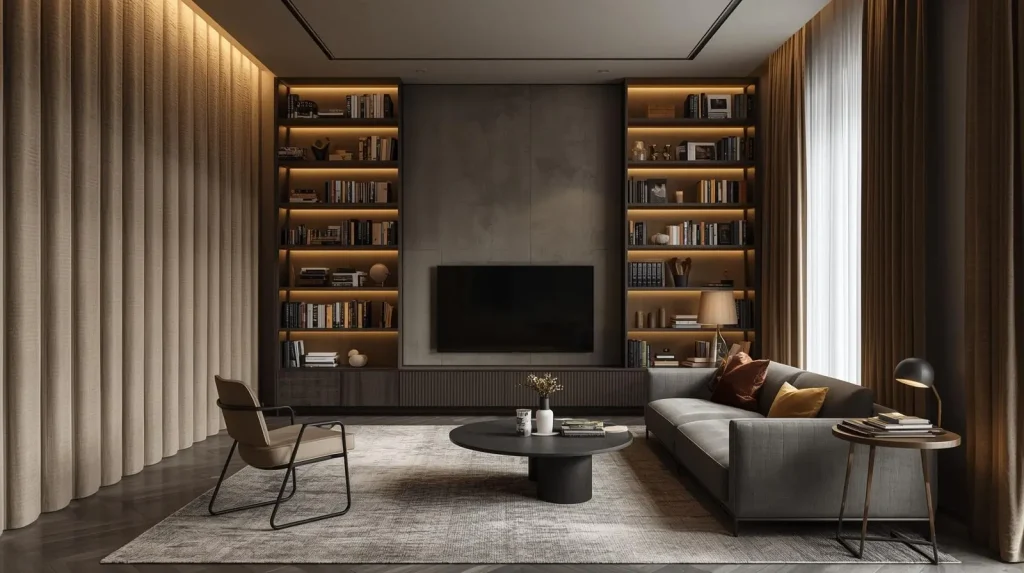Living in an apartment comes with many advantages, but privacy is often not one of them. Whether it is a neighbor’s TV, footsteps, or late-night conversations, noise through walls can quickly turn comfort into frustration. That is why apartment wall soundproofing has become a popular solution for renters and homeowners alike. With the right approach, you can reduce unwanted noise, improve sleep, and create a more peaceful home environment.
This guide explores practical methods for soundproofing apartment walls, the materials you can use, and cost-effective strategies that deliver noticeable results.
Why Soundproofing Apartment Walls Matters
Noise pollution is more than just an annoyance. Over time, it can affect focus, sleep quality, and even stress levels. Apartment buildings often have thinner walls compared to houses, making sound transfer more noticeable. Soundproofing helps in:
- Reducing distractions from neighbors.
- Increasing privacy during conversations.
- Creating a calm atmosphere for relaxation or work.
- Boosting property value by improving living conditions.

If you are searching for how to soundproof apartment walls without major construction, the good news is there are several options to fit different budgets and rental restrictions.
How Sound Travels Through Apartment Walls
To understand how to block noise, it helps to know how sound moves. Walls are solid, but not all walls are equally dense. Sound travels in two main ways:
- Airborne noise: Voices, music, or barking dogs pass through gaps, thin drywall, or vents.
- Impact noise: Vibrations from footsteps or slamming doors transfer through the building’s structure.
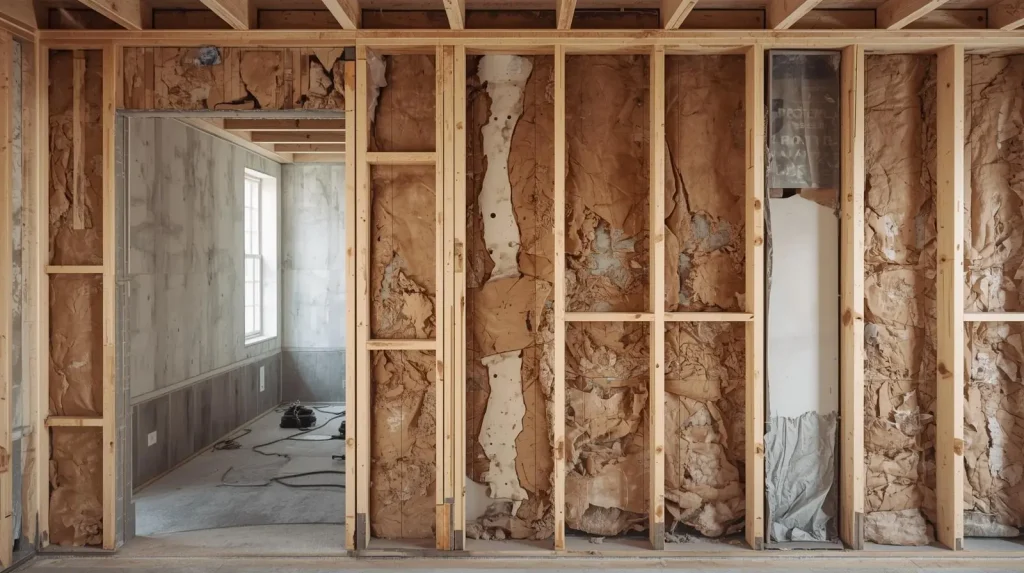
Apartment wall soundproofing solutions target these two issues by adding mass, absorbing vibrations, and sealing gaps.
Effective Soundproofing Methods for Apartment Walls
Add Mass with Soundproof Panels
The simplest way to reduce noise is by adding mass to walls. Soundproof panels and acoustic boards are designed to absorb and block sound waves.
- Acoustic foam panels: Lightweight, easy to install, and renter-friendly.
- Mass loaded vinyl (MLV): Dense, flexible material that adds significant sound-blocking capability.
- Fabric wall panels: Blend into décor while improving sound absorption.
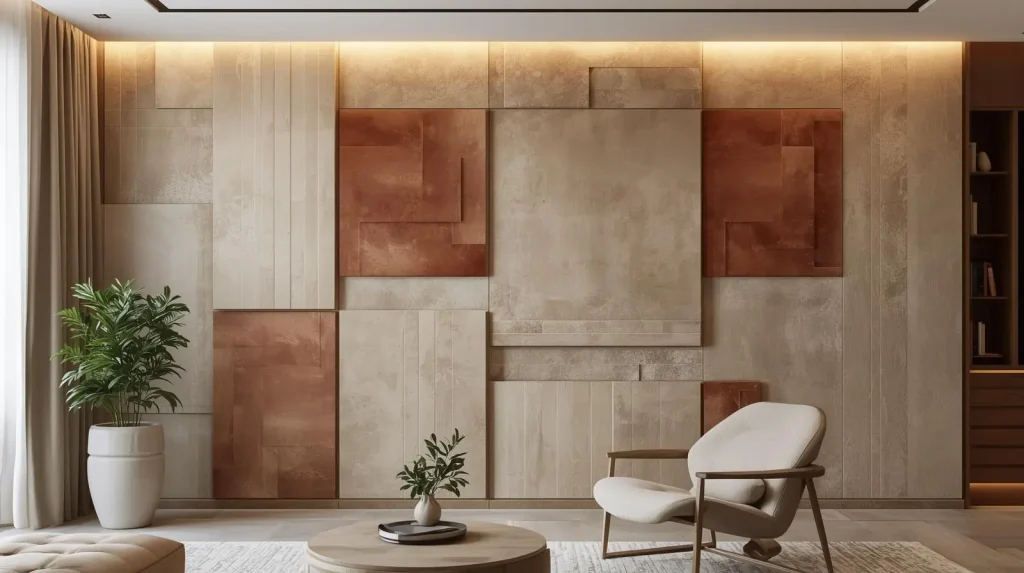
Use Insulation for Better Noise Control
If you own your apartment or have permission to make modifications, insulation inside the wall cavity can make a huge difference. Options include:
- Fiberglass insulation: Affordable and effective for blocking airborne noise.
- Mineral wool: Denser than fiberglass and offers excellent sound absorption.
- Blown-in cellulose: Ideal for existing walls without major demolition.
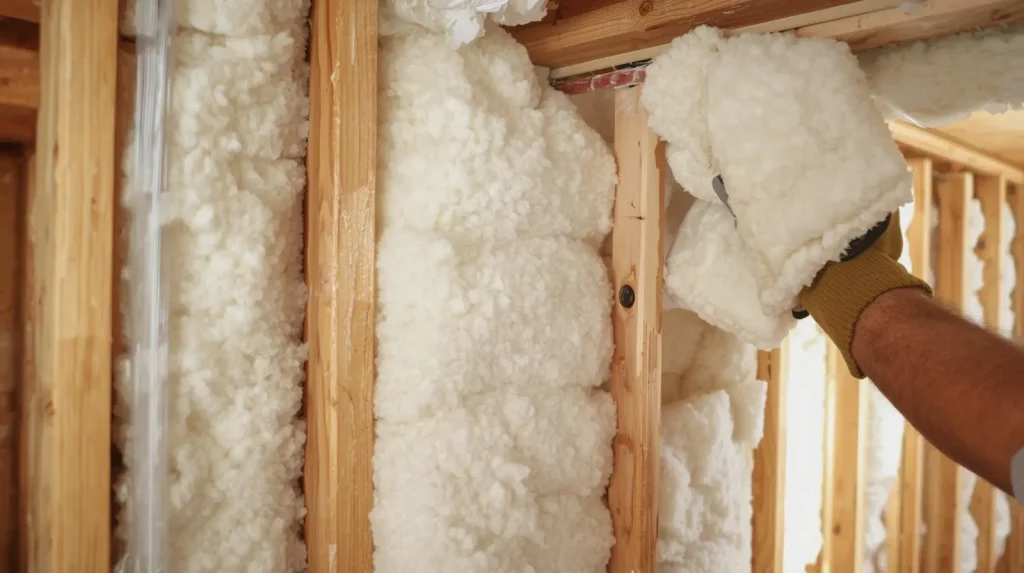
Install a Second Layer of Drywall
Adding another layer of drywall increases density and helps reduce sound transmission. For even better performance, you can:
- Use sound-dampening drywall designed for noise reduction.
- Apply green glue soundproofing compound between drywall layers to absorb vibrations.
Seal Gaps and Cracks
Even the smallest gaps can allow sound to travel. Look around light switches, electrical outlets, and along wall edges. Use:
- Acoustic caulk for sealing cracks.
- Foam gaskets behind outlet covers.
- Weatherstripping for doorframes near walls.
Hang Soundproof Curtains and Wall Hangings
Not every renter can modify walls permanently. For a temporary fix:
- Use heavy soundproof curtains along shared walls.
- Hang tapestries, bookshelves, or large canvases to add mass and reduce noise reflection.
- Try removable soundproof wallpaper designed for renters.
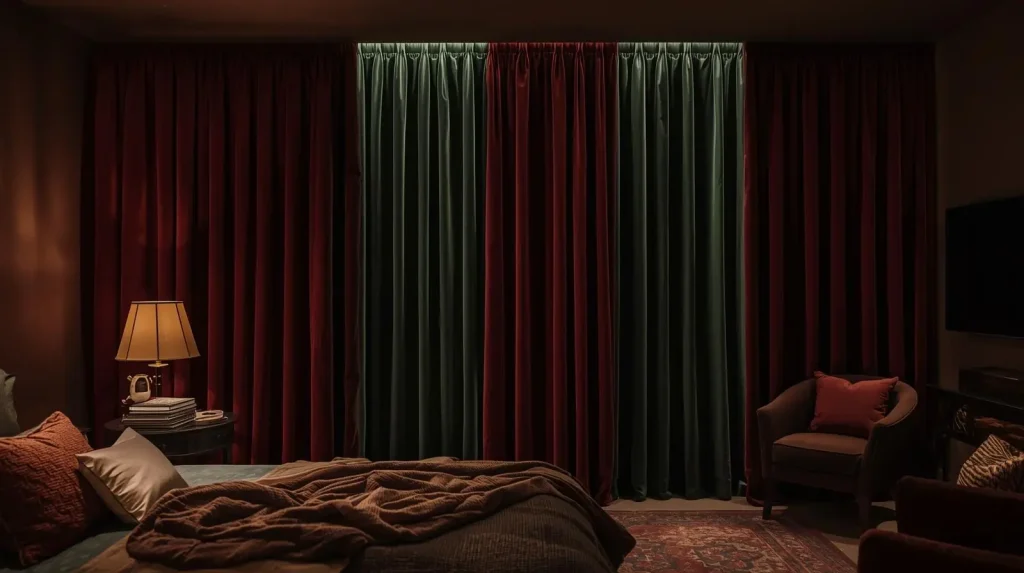
Budget-Friendly Soundproofing for Apartments
You do not always need a construction project to quiet your apartment. Some simple, affordable steps include:
- Rearranging furniture: Place bookshelves or wardrobes against shared walls.
- Using thick rugs and carpets to absorb vibrations.
- Installing peel-and-stick acoustic tiles for renter-safe solutions.
- Adding door draft stoppers to reduce noise seepage.
These small changes may not fully block noise, but they can make a noticeable difference in day-to-day comfort.
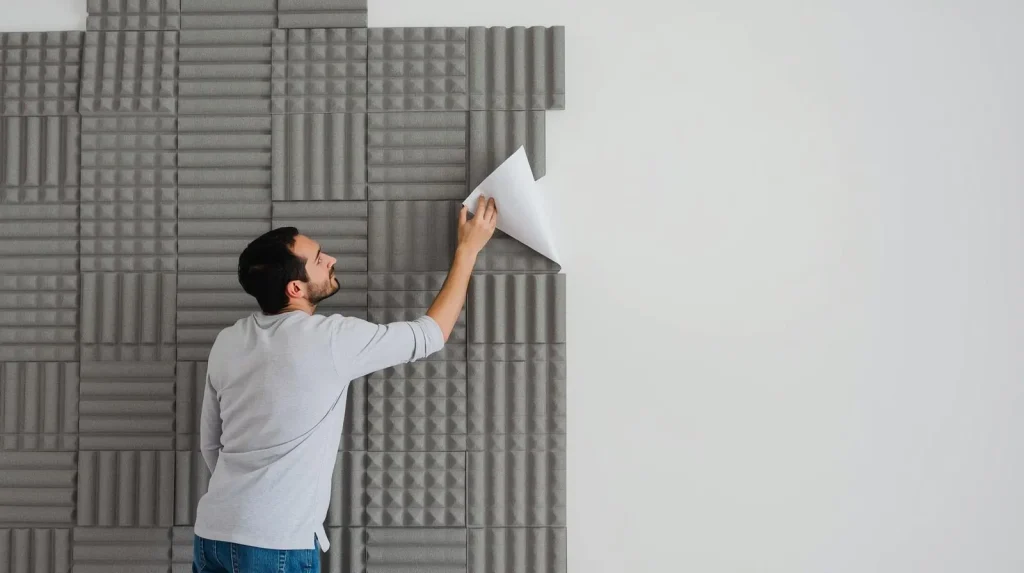
Professional vs DIY Soundproofing
When deciding how to soundproof apartment walls, you need to consider whether to hire a professional or take the DIY route.
DIY Soundproofing
- Lower cost.
- Easy to implement renter-friendly options.
- Great for small improvements like panels or curtains.
Professional Soundproofing
- Higher upfront cost.
- Long-term results with insulation, drywall, or structural upgrades.
- Better suited for condo owners or permanent residents.
For renters, DIY soundproofing is usually the best choice. Homeowners may find professional installation worth the investment.
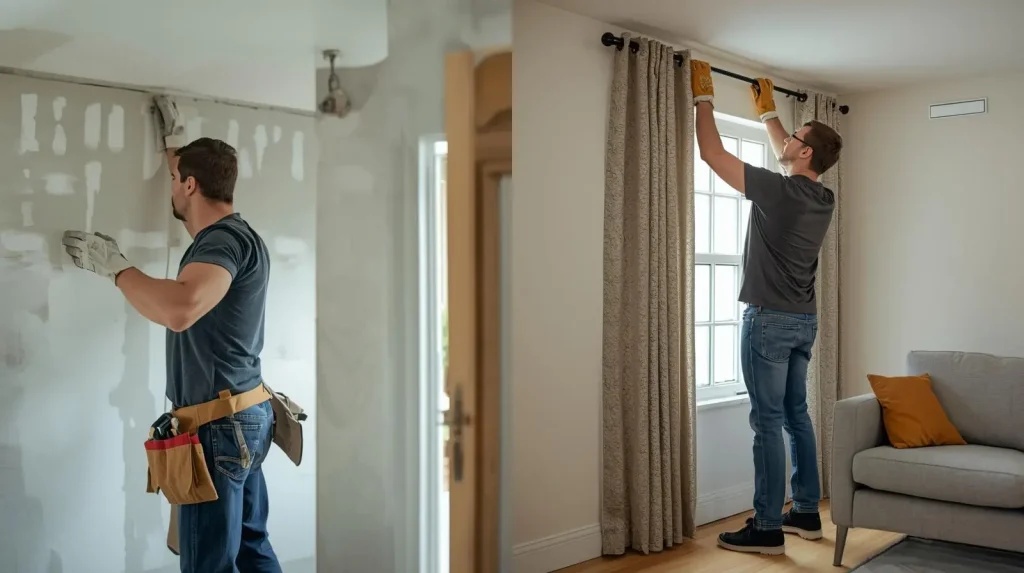
Things to Consider Before Soundproofing
Before starting your project, keep these points in mind:
- Building rules: Some apartment complexes restrict wall modifications.
- Budget: Decide between temporary fixes and permanent upgrades.
- Noise type: Identify whether it is airborne or impact noise to choose the right solution.
- Aesthetics: Select materials that match your interior style.
Benefits of Apartment Wall Soundproofing
Investing in soundproofing is not just about quiet. It also offers:
- Improved focus for remote workers or students.
- Better sleep quality by blocking nighttime disturbances.
- Increased property appeal if you own and plan to rent or sell.
- Enhanced comfort for daily living.
Conclusion: Take Control of Your Apartment Noise
Apartment wall soundproofing can transform your living experience. Whether you choose simple fixes like acoustic panels and curtains or more advanced options like insulation and drywall, every step toward reducing noise brings more peace of mind.
Start small if you are renting and consider long-term upgrades if you own your apartment. By addressing the source of noise and sealing weak spots, you can create a quieter, more private, and comfortable home.
Ready to enjoy peace in your apartment? Begin with renter-friendly solutions today and explore advanced soundproofing for lasting results.

